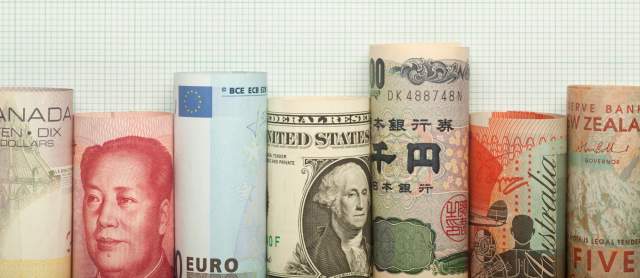20 New Ideas For Choosing Currency Converter Sites
Ten Best Tips To Increase Your Exchange Rate MarginsUnderstanding exchange rates margins is crucial for anyone who has to manage international investments, traveling or conducting business with international partners. The margin of exchange is the difference in the buying and selling rates of currency. It could affect the general cost of transactions. The margins for exchange rates can vary greatly between different providers. This could have a significant impact on how much it will cost you to exchange money or make an investment profit. If you know the intricacies of exchange rate rates, you'll be able make better-informed decisions that can assist you in saving money as well as improve your financial performance. Here are the top 10 specific guidelines for managing exchange rate margins.
1. Understand what the exchange rate margin means
The exchange rate margin or spread is the difference of the amount the currency of another country can be sold for and the price it could be bought for (ask). It is vital for travelers or business owners as well as investors to understand this concept because it affects the rate of exchange they receive when converting currency. A lower margin means a better exchange rate and helps you make better financial decisions.
2. Compare margins between providers
The various financial institutions and currency exchange services can offer different exchange rate margins. Compare rates from a variety of providers like exchange kiosks, banks and online platforms. Websites such XE.com and OANDA provide information on the current rates and margins. They help you choose the most suitable option for your currency transactions.
3. Understanding the influence of market forces on margin
The margin of exchange rates can be influenced in many ways, including markets volatility, geopolitical influences as well as economic indicators. In some cases, an economic crisis or political instability can cause a greater margin due to the increased risk. Keep informed about the market's dynamics to be able to anticipate currency rate fluctuations and make timely decisions.
4. Use Online Currency Exchange Platforms
Online currency platforms usually offer better rates of exchange and smaller margins in comparison with traditional banks. Companies such as Wise (formerly TransferWise) and copyright typically provide real-time rates with lower fees and higher margins. It is possible to save money by using these platforms when you require converting currency for business and travel.
5. Timing Your Currency Exchange
If you decide to convert your currencies, it may affect your margins. Exchange rates fluctuate all throughout the day based on market's supply and demand. The monitoring of these fluctuations can aid in determining the most suitable time to exchange currencies, possibly leading to better margins. Tools that track the trend of currency can be beneficial in making these decisions.
6. Hedging currency with leverage
For investors and businesses using currency hedging strategies can assist in managing exchange rate margins effectively. Hedging involves using financial tools that lock in the future exchange rate and safeguard against negative currency movements. This method can help businesses that trade internationally to minimize the impact on margins and improve profit stability.
7. Pay attention to Economic Indicators
The exchange rate and margins could be influenced by a variety economic indicators such as the rate of inflation, interest rates, and employment data. Inflation rates that are higher in a particular country may stimulate the investment of foreign capital. This could strengthen the currency of that country and reduce its margin. Monitoring these indicators will provide you with an understanding of possible currency fluctuations. You can then adjust your strategy.
8. Consider Local Currency when Traveling
Make sure to pay for your purchases in local currency, not your own. This can help you stay clear of the shaky margins of exchange rates which are usually related to merchants' dynamic currency conversion options (DCC). The exchange rate is generally more favorable when you pay in local currencies.
9. Avoid Hidden Fees
Be aware of any hidden charges imposed by companies that convert currencies. They could include service charges as well as transaction fees and commissions that can widen your margin of profit. To avoid unexpected costs, always review the fine print before making a change in currency.
10. Contact Financial Experts for Large Transactions
Contact a financial expert or specialists in currency if you work in large sums of money, or if your exchanges for currency are complicated. They can offer valuable insight. They can help you comprehend the exchange rate margins and suggest strategies to reduce expenses. They can be particularly useful to businesses that carry out international transactions, or for investors looking to maximize their portfolios of currencies.
These detailed guidelines on exchange rate margins can help you navigate the complexity of currency transactions, whether you're on the road or managing investments, conducting business or both. Understanding the margins of exchange allows you to make the right financial choices that align with your goals, and ultimately saves you money. Take a look at the most popular dollar for more tips including exchange rate, rs to usd, jpy usd, us dollar to mexican peso, dollar to yen, yen to usd, currency exchange, usd to jpy, pound to usd, vnd to usd and more.

The Top 10 Ways To Limit Your Currency Transactions And Exchange Rates
The limitations of transactions are crucial in financial transactions. Limits are set to limit the amount of money that is able to easily be transacted in a specific period. They are typically established by payment platforms, financial institutions or banks. Understanding the limitations of transactions will aid you in maximizing your financial strategy and prevent unnecessary costs or delays. Limits on transactions can affect cash withdrawals abroad and purchases. For companies, they may influence payment processing and cash flow management. When purchasing or selling assets investors should be aware that there are transaction limits. These are the most comprehensive tips for managing transaction limitations in financial transactions.
1. Know Your Bank’s Transaction Limits
Each financial institution or bank has its own set of limits for withdrawals. Purchases. Transfers. It is essential to be familiar with these transaction limits before making any large purchases or travel. This information can assist you in managing your finances efficiently and avoid issues when trying to transfer funds or purchase items from abroad. Check your bank's website or contact customer support for more information about your account limits.
2. Prepare for Cash Withdrawals when Traveling
- When traveling, it's important to make sure that cash withdrawals are planned to stay within your bank's transaction limits. Knowing the daily limit for cash withdrawals will help you estimate the amount of cash you'll will need for your trip. Think about taking large withdrawals in one sitting in order so that you do not run out of cash. Be aware of any ATM charges that may be applicable. In addition, you should have a backup payment alternative in the event that you go over your withdrawal limit.
3. Utilize Multiple Payment Methods
If transaction limits apply, it can be dangerous to only rely on a single kind of payment. To ensure you always have money available, use a combination of credit card as well as cash and mobile payment applications. This will help you avoid exceeding the limit of transactions you can make on one account. It also allows flexibility to manage your finances travelling or doing business.
4. Be aware of your transactions regularly
The ability to monitor your transactions will help you monitor your spending, and make sure that you don't exceed the limit. There are many banks that offer mobile applications which allow you to monitor the transactions you make in real-time giving you insight on your balance as well as the fees you pay. Be aware of your account's activity to keep track of your finances and avoid unexpected problems when you make purchases.
5. For more information on international Transaction Limits
If you intend to make international purchases or withdrawals, ask your bank for their policy regarding the limits for international transactions. Some banks have tighter restrictions on transactions made from abroad. This can impact the ability of you to purchase or access funds while abroad. Knowing these limits can help you to plan and avoid any disruptions on your trip.
6. You might want to consider using alerts on transactions
Many banks have alert systems that inform you when you are about to exceed your limit on transactions. You can control your finances more effectively by setting up these alerts. They will also prevent you from going over the limit. This feature is particularly beneficial for travellers who might be more susceptible to losing track during travel.
7. Be aware of daily and Monthly Limits
Limits on transactions could be determined by time frames like daily limits or monthly limits. The bank you use may permit you to withdraw money per day, but it may limit monthly transactions. Understanding these timeframes will aid you in planning your transactions effectively and make sure you are able to get funds when you need them without exceeding limits.
8. Consult Your Bank about Temporary Limits Increases
- If you anticipate needing to make more substantial transactions, you should consult with your bank about the possibility of a temporary increase in limit. A majority of banks will accommodate requests for higher limits, as long as you provide an acceptable reason. To help facilitate the process make contact with your bank in advance to discuss your request and to provide the necessary documentation.
Review payment platform limits
Be aware that payment processors like copyright, Venmo or others have restrictions on transactions. Based on account verification status, and the history of users each platform could have different maximum transaction limits. Before completing transactions, you should review the limits to prevent interruptions or delays when processing your payments.
10. Learn More About Investment Transaction Limits
Investors could be restricted in their transactions when buying or selling securities through brokerage accounts. This can affect your ability during turbulent markets, to swiftly complete trades. Learn about your broker's rules regarding transaction limits and consider utilizing limit orders or other strategies to manage your investments effectively.
You can manage your transactions by directing your transactions effectively. This will allow you to better navigate the many complexities of working, traveling or evaluating your investments. Understanding the policy of your bank for cash withdrawals, using multiple payment options and monitoring your transactions can help you make better financial choices. In the end, you'll be able improve your financial strategy and avoid costly fees. Take a look at the top rated CZK to EUR for blog advice including cdn to usd, yen to us dollar, usd to euro exchange rate, dinar guru, usd to rmb, indian rupees to usd, currency exchange near me, euro to dollar, won to usd, us to baht and more.
